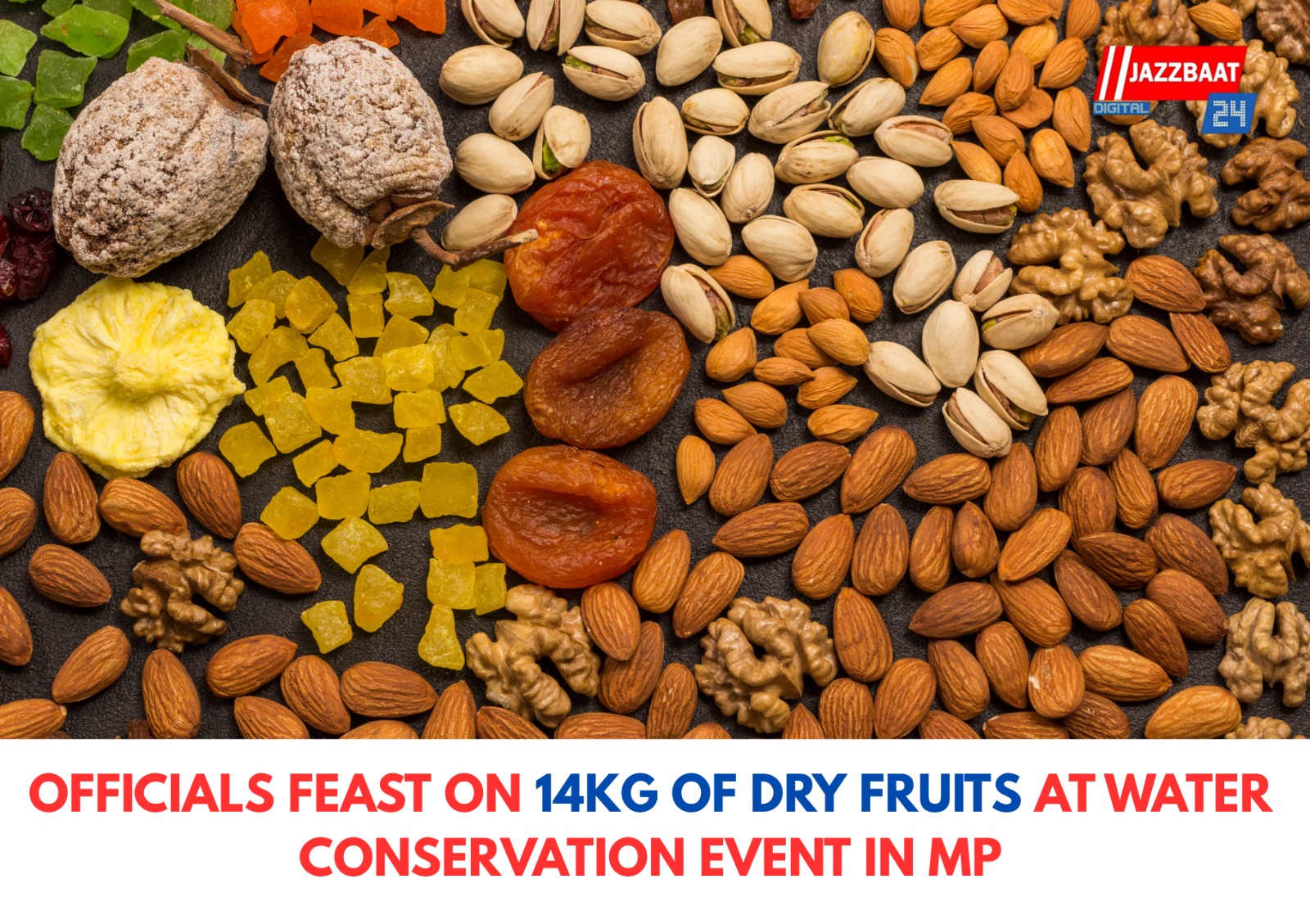
Shahdol District Collector Orders Probe After ₹85,000 Bill Goes Viral. A water conservation programme in Madhya Pradesh's Shahdol district has sparked controversy after officials allegedly consumed 14 kilograms of dry fruits and 30 kilograms of snacks during a one-hour event, with the entire bill footed by the local gram panchayat.
The incident occurred on May 25 during a "Bori Bandhan" programme at Bhadwahi Gram Panchayat under the state's Jal Ganga Sanvardhan Abhiyan (Water Conservation Campaign). The event was attended by District Collector Dr Kedar Singh, District Panchayat CEO Narendra Singh, SDM Pragati Verma, and other senior officials.
Lavish Menu Raises Eyebrows According to bills that went viral on social media, the officials were served an extravagant spread that included:
6kg cashews, 5kg almonds, and 3kg raisins 9kg fresh fruits (bananas, apples, grapes, pomegranates) 30kg of snacks.
Tea made with 6 litres of milk and 5kg of sugar
50 packets of puri-sabzi and 20 packets of biscuits.
Even the cost of dry fruits that was 19,010 in itself was very surprising; all these costs coming up to almost 85,000 rupees, and it was just a simple gathering in the village.
To the frenzy, two independent bills reflected various rates on the same products. The price of cashews was 1000 per kilogram at Govind Gupta Kirana Store, and the same product was available in another vendor at 600 per kilogram on the same date, which casts doubt on the billing system as to its authenticity.
Those locals who were participants in the event described a different situation. basic food was served to us. Not a single cashew, not a single almond was in sight said one villager. They said they were provided with, khichdi, puri and vegetables whereas the menu was mentioned in elaborate detail of the bills.
Govind Gupta, whose store's bill was used for the dry fruit purchases, denied selling snacks to the event organisers. "Bills must be for other expenses," he told reporters.
District Collector Kedar Singh, who ordered the probe, distanced himself from the controversy. "I do not eat dry fruits, and I didn't eat any at the meeting either. I left early," he said, promising action against those found guilty.
In-charge District Panchayat CEO Mudrika Singh, also present at the event, claimed she "could not see the dry fruits and their quantity" as "it was dark."
This incident comes just days after another scandal in Shahdol involving alleged misuse of government funds. Earlier, social media erupted over a ₹1.07 lakh bill for painting two government schools, which claimed 168 labourers and 65 masons were used to apply just four litres of paint at one school.
The Jal Ganga Sanvardhan Abhiyan was launched with the vision of community participation in water conservation through activities like cleaning water sources, creating check dams, and awareness programmes. The campaign has been personally reviewed by Prime Minister Narendra Modi and is part of Chief Minister Mohan Yadav's environmental initiatives.
However, the Shahdol incident has turned the spotlight on misplaced priorities and financial irregularities at the grassroots level. While officials participated in the symbolic act of filling sandbags to block water flow at Jhunja stream, their hour-long visit is now overshadowed by allegations of corruption.
District Panchayat CEO MP Singh has promised a thorough investigation. "A full investigation will be conducted, and action will be taken if misappropriation is confirmed," he assured.
The controversy has prompted calls from residents and RTI activists for stricter monitoring of gram panchayat expenditures and better accountability in government programmes.
As the probe continues, the incident serves as a stark reminder of how well-intentioned government initiatives can be derailed by poor execution and lack of oversight, turning a noble water conservation effort into a costly embarrassment for the state administration.